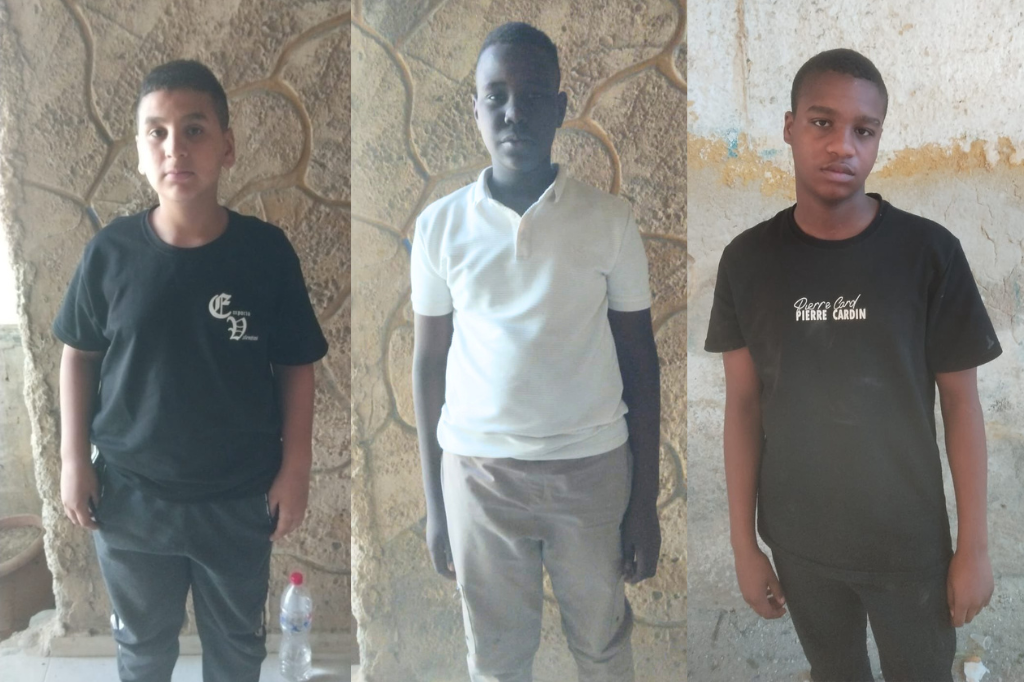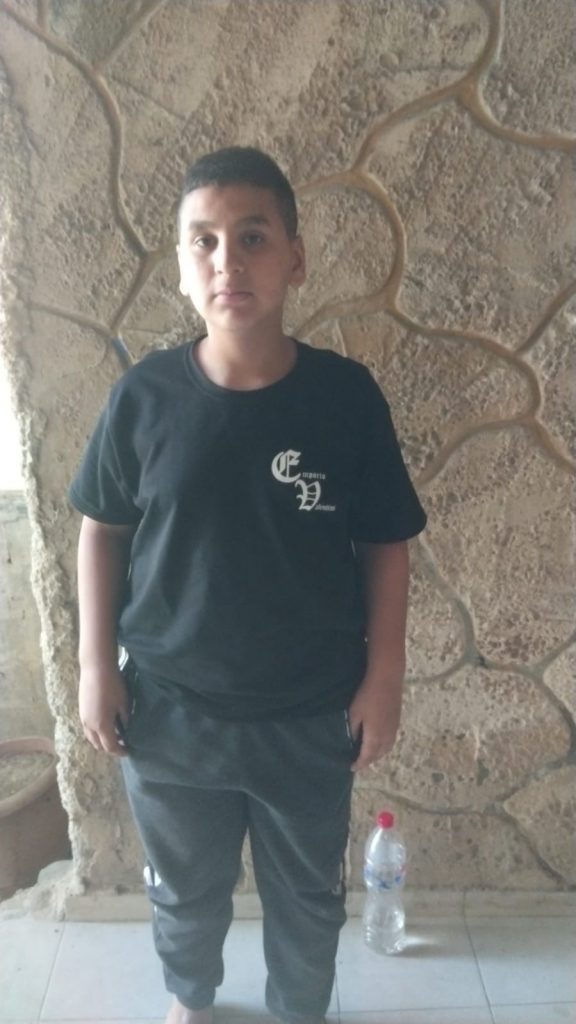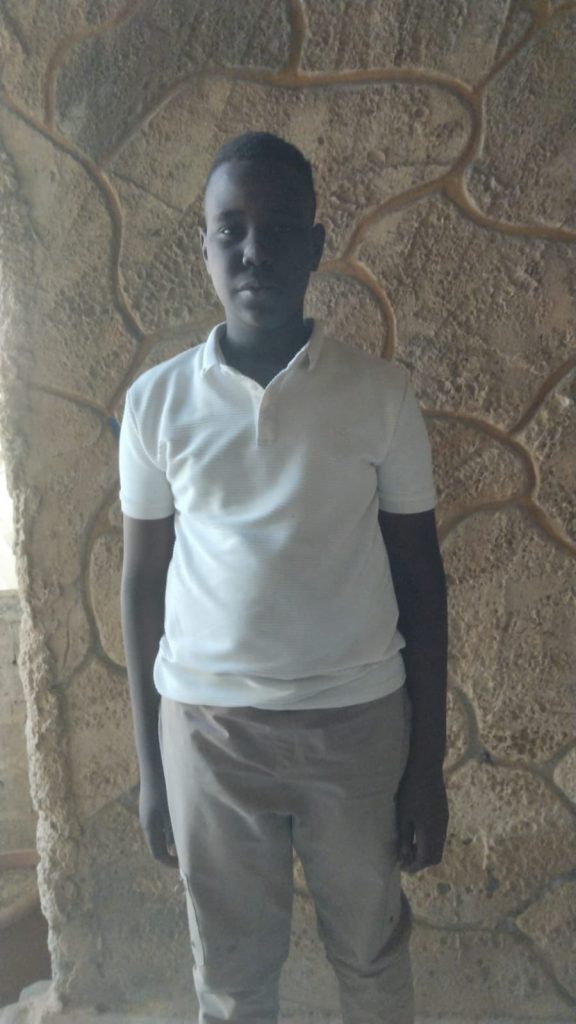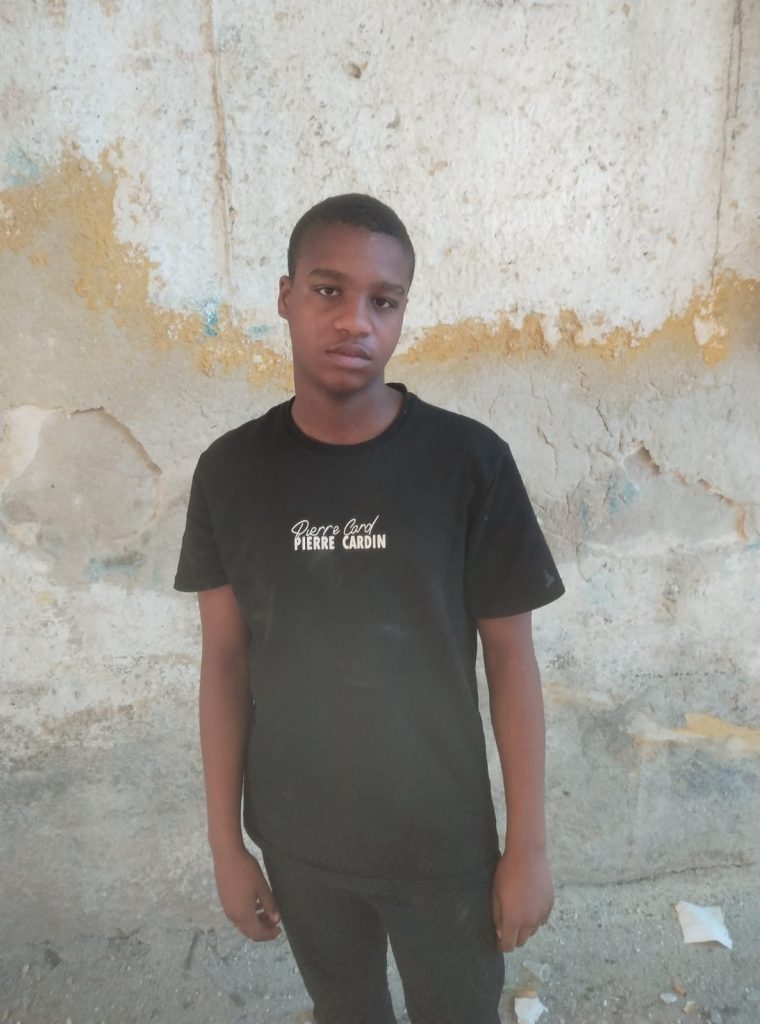13-year-old Karam, left, 12-year-old Mohammad, center, and 14-year-old Ibrahim, right, were used as human shields by Israeli forces on May 6 in Tulkarem refugee camp, according to documentation collected by Defense for Children International – Palestine. (Photos: Courtesy of the families)

Ramallah, May 13, 2024—Israeli forces used three Palestinian boys as human shields in the northern occupied West Bank last week.
Karam, 13, Mohammad, 12, and Ibrahim, 14, were used as human shields by Israeli forces in separate incidents during an Israeli military incursion into Tulkarem refugee camp on May 6, according to documentation collected by Defense for Children International – Palestine. In all three incidents, armed Israeli soldiers forced the boys to walk in front of them as soldiers searched Palestinian homes and neighborhoods in Tulkarem refugee camp, and in two cases, Israeli forces fired weapons positioned on the boys’ shoulders.
“International law is explicit and absolutely prohibits the use of children as human shields by armed forces or armed groups,” said Ayed Abu Eqtaish, accountability program director at DCIP. “Israeli forces intentionally putting a child in grave danger in order to shield themselves constitutes a war crime.”
Around 30 Israeli soldiers entered 13-year-old Karam’s home on the morning of May 6, located on the third floor of an apartment building. Israeli forces isolated Karam’s family in one room and forced Karam to walk in front of them, open the doors to each room, and enter it before them. Then, Israeli forces moved Karam and his family to the fourth floor of the building, where the rest of the building’s residents were held.

Israeli forces then took Karam to the building’s staircase, where they were accompanied by a “huge military dog,” as Karam told DCIP. While they were walking, one soldier placed his rifle on Karam’s right shoulder and fired two shots toward an apartment in the building.
“I was crying and shaking in fear, and whenever I begged the soldiers to stop, they would scream at me and order me to be silent,” Karam said.
“After the soldiers searched the apartments of the building that I was entering before them, I asked them while crying where they were taking me. One of them answered me in Arabic that they would take me with them to show them the way, in addition to opening the doors of the neighboring houses and entering before they did.”
When Karam and the Israeli soldiers arrived at the first floor of the building, where his grandmother lives, she began yelling at them and asking them to release him, so they returned him to the fourth floor. Karam’s grandmother was unable to climb the stairs to the fourth floor due to her age and health and Israeli forces permitted her to stay on the first floor.
“While we were climbing up the stairs, three soldiers assaulted me severely with black sticks that they had. They beat me on my lower limbs and my back for about five minutes, while they were telling me that I was a terrorist. When I reached the fourth floor, I was exhausted and could not stand as a result of the beating and fear. I was kept with the residents of the building until around 7 p.m., during which the soldiers did not allow us to eat anything,” Karam told DCIP.
12-year-old Mohammad told DCIP that his family decided to go to their relatives’ house in Tulkarem refugee camp after they heard that Israeli forces had besieged the camp so they would not be alone. Their relatives’ house was an apartment located on the second story of a residential building.

Around 8 a.m. on May 6, Israeli soldiers entered the apartment and ordered everyone to leave, and when they saw Mohammad, they took him away from his family, despite his mother’s pleas and desperate attempts to free him.
“I was left alone with the soldiers after they ordered my mother and siblings to go up to the fourth floor of the building. I started crying and shaking in fear because I did not know what they would do to me. They were armed, masked, and had frightening appearances. They had a huge military dog that made terrifying sounds,” Mohammad told DCIP.
“After that, the soldiers told me to knock on the doors of the apartments in the building, while they were standing behind me at a fairly short distance, and to ask the residents to come out, and this is what I did. When we reached the door of one of the apartments, there was no one inside, so the soldiers blew up the door and forced me to go inside alone and check and search it. After I told them that it was empty, they entered it, while I remained held by one of the soldiers at the door,” Mohammad added.
“While I was held in the hallway, the soldier guarding me assaulted me with a wooden stick for about 10 minutes. He hit me on my head and back. After the soldiers left the apartment, they took me to the fourth floor, during which one of them hit me with his hands on my head, and I fell on my face. One soldier also put his rifle on my shoulder and fired several bullets at the ceiling of the staircase. They kept me with them for about two hours, during which I was crying out of fear, terror, and pain. I begged them a lot to no avail. When we reached the fourth floor, I was searched before I was held with the rest of the building’s residents until about 7 p.m., without being allowed to have anything to eat,” Mohammad said.
14-year-old Ibrahim was in his family’s home in Tulkarem refugee camp around 9:30 a.m. on May 6 when Israeli soldiers entered and searched their house.

“A number of soldiers took me to one of the rooms and began interrogating me about the whereabouts of wanted men. When I told them that I did not know anything, one of them threatened me in Arabic and said that he would shoot me if I did talk, after which he slapped me and kicked me for a few minutes. Then, my hands were cuffed behind my back with a plastic tie, and I was taken outside and forced to walk in front of the soldiers,” Ibrahim told DCIP.
“I was trembling because of intense fear and terror,” Ibrahim said. “At first, I thought they wanted to arrest me, but they told me to walk in front of them in the alleys of the Sawalma neighborhood in the camp. They would hide in the alleys and tell me to see if there was anyone around. After that, they untied my hands, and whenever we passed a house or building, they would instruct me to enter and ask the residents to come out. Then they would raid those houses and tell me to open the doors into different rooms.”
After about two hours, Ibrahim was taken to one of the houses in the camp and held there with the residents until Israeli forces withdrew from Tulkarem refugee camp.
The use of civilians as human shields, wherein civilians are forced to directly assist military operations or used to shield armed forces or armed groups or objects from attack, is prohibited under international law. The practice is also prohibited under Israeli law based on a 2005 ruling by the Israeli High Court of Justice.
Since 2000, DCIP has documented 34 cases involving Palestinian children being used as human shields by the Israeli army. Last year, Israeli forces used four young children in Aqbat Jabr refugee camp, near Jericho in the occupied West Bank, as human shields.
All except one case have occurred after the Israeli High Court of Justice ruling. Only one of those cases led to the conviction of two soldiers for “inappropriate behavior” and “overstepping authority.” Both were demoted in rank and given three-month suspended sentences.
